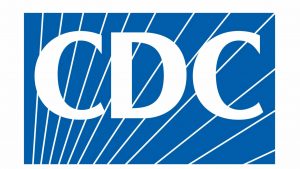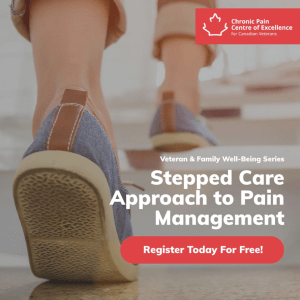Announcements
AHRQ Protocol on Integrated Pain Management Programs – Deadline is December 21
 The Evidence-based Practice Center (EPC) Program at the Agency for Healthcare Research and Quality (AHRQ) has posted the protocol for Integrated Pain Management Programs. The protocol is available at: the Effective Healthcare Web site.
The Evidence-based Practice Center (EPC) Program at the Agency for Healthcare Research and Quality (AHRQ) has posted the protocol for Integrated Pain Management Programs. The protocol is available at: the Effective Healthcare Web site.
In addition, if there is unpublished scientific information relevant to this topic, we encourage you to submit it via the Supplemental Evidence and Data for Systematic Reviews (SEADS) portal. The deadline for submissions is December 21, 2020. Materials submitted cannot be confidential; they may be made public.
The purpose of the review is to evaluate the effectiveness and harms of integrated pain management programs and describe contextual, process and structural factors that may impact outcomes particularly in the Medicare population.
New Data from CDC: Chronic Pain and High-impact Chronic Pain Among U.S. Adults, 2019
 Select key findings:
Select key findings:
Data from the National Health Interview Survey
- In 2019, 20.4% of adults had chronic pain and 7.4% of adults had chronic pain that frequently limited life or work activities (referred to as high impact chronic pain) in the past 3 months.
- Chronic pain and high-impact chronic pain both increased with age and were highest among adults aged 65 and over.
Talk to Your Congresspeople about NOPAIN Act
 The Non-Opioids Prevent Addiction in the Nation (NOPAIN) Act (H.R. 5172/S. 3067) is bipartisan legislation designed to incentivize the utilization of non-opioid pain management approaches by addressing outdated federal reimbursement policy.
The Non-Opioids Prevent Addiction in the Nation (NOPAIN) Act (H.R. 5172/S. 3067) is bipartisan legislation designed to incentivize the utilization of non-opioid pain management approaches by addressing outdated federal reimbursement policy.
- Expand access to non-addictive drugs, biologics, and medical devices that have been clinically proven to replace or reduce opioid consumption in a clinical trial or a peer-reviewed journal;
- Apply to all treatments provided in all outpatient surgical settings for a temporary 5 years; and
- Require a report to Congress on limitations, gaps, barriers to access, or deficits in Medicare coverage or reimbursement for therapeutic services.
Read about the NOPAIN Act and consider contacting your Congressperson.
Integrating Behavioral Health Care into Pain Treatment Plans Improves Patient Outcomes
 The goal is the best care at the right time for the whole person.
The goal is the best care at the right time for the whole person.
All the presenters agreed that a whole person perspective is necessary and what works for some may not work for others – so widening the net of evidence-based options is key as is collaboration between providers and payors.
Taking a close look at how behavioral health can be effectively utilized as part of a comprehensive approach to pain management, nearly 150 health care providers, people with pain, health insurers, and large purchasers of healthcare recently attended Behavioral Health as a Part of Comprehensive Pain Care and Payment Design, a virtual symposium hosted by the Alliance to Advance Comprehensive Integrative Pain Management in partnership with the American Psychological Association and Midwest Business Group on Health.
Providing optimal care in light of the challenges presented by COVID-19 was at the forefront of nearly everyone’s mind. In kicking off the event, Denise Giambalvo, Vice President of the Midwest Business Group on Health, stated that U.S. drug overdoses have resurged to record highs in the shadow of the pandemic, pointing to the need to both utilize non-opioid treatments for pain when possible, as well as the need for improved identification and treatment of substance use disorders. Following up, Robin Kahn, Director of Health and Benefits at Willis Towers Watson, discussed the dire effects of the pandemic on mental health, stating that 92% of employees have reported anxiety this year, going on to remind attendees that increased stress and anxiety worsen chronic pain.
Further, Ms. Kahn highlighted the confusion among employers as purchasers of healthcare – there is no clear pathway to integrate behavioral health between medical coverage, employee assistance programs and other wellness offerings. She ended with some questions, “How do you then connect all of the dots, let alone help a person find the right care? If I need help, who do I call? Where do I begin? How do I know that just because they’re in network, that they’re the best solution for me? So unfortunately, there’s no single solution a lot of times for the individuals and not for the employer either.” Read summary at link below.
Canadian and U.S. Veterans’ Leading Experts Unite for New Series About Chronic Pain Best Practices
This four-session inaugural symposium is hosted by the Chronic Pain Centre of Excellence for Canadian Veterans (CPCoE) in collaboration with leading experts from the United States Department of Veterans Affairs (VA) and United States Department of Defense (DoD).
AACIPM is promoting the dissemination of The Veteran and Family Well-Being Series in the United States and encourage all stakeholders to share this high-quality, free resource with your networks (see information below for the third session on December 2).

Session 3 of 4
Share & Register: Stepped Care Approach to Pain Management
 When: December 2, 2020 from 12:00pm – 1:00pm EST
When: December 2, 2020 from 12:00pm – 1:00pm EST
Speakers:
Dr. Patricia Poulin is a Clinical Health and Rehabilitation Psychologist at The Ottawa Hospital Pain Clinic, an Associate Scientist at the Ottawa Hospital Research Institute.
Regina Visca, PhD Candidate, is the administrative director of the McGill RUIS Centre of Expertise in Chronic Pain and is leading the development, implementation and evaluation of a hierarchical network of services from primary to tertiary level care for the management of chronic pain.
Dr. Diane Flynn is a Family Physician, Primary Care Advisory, and Pain Outcomes Researcher with the U.S. Department of Defense (DOD). A recent AACIPM interview with Dr. Flynn and the Madigan interdisciplinary team can be found here.
Overview:
How can care teams provide a range of pain management options that are personalized to the individual patient? This 60-minute virtual symposium will discuss the “stepped care model”, a personalized pain management program based on the individual patient’s needs and responses to different types of pain management therapies. These therapies are gradually increased or decreased based on the individual needs and past medical experiences of the patient or Veteran. Speakers will be available to answer audience questions live at the end of each presentation.
Spotlight: AACIPM’s Alyssa Wostrel joins the International Association of Yoga Therapists as Executive Director (IAYT)
 When AACIPM launched in 2019 as a first-of-its-kind multi-stakeholder collaborative, it was notable that a position was created within the grant funding for an Integrative Health Sector Coordinator. The purpose has been to ensure that the integrative healthcare stakeholder community was continuously informed about the fast-moving developments related to the practice of CIPM and could respond in a coordinated way to calls to action or engagement opportunities..
When AACIPM launched in 2019 as a first-of-its-kind multi-stakeholder collaborative, it was notable that a position was created within the grant funding for an Integrative Health Sector Coordinator. The purpose has been to ensure that the integrative healthcare stakeholder community was continuously informed about the fast-moving developments related to the practice of CIPM and could respond in a coordinated way to calls to action or engagement opportunities..
Alyssa Wostrel, MBA has worn the Integrative Health Sector Coordinator hat since AACIPM’s launch (along with her other hat at the time of Executive Director with the Academic Collaborative for Integrative Health or ACIH). Alyssa notes “Having the opportunity to work closely with my long-time colleague, Amy Goldstein and the stellar AACIPM team to help connect the dots in support of CIPM has been a joy! Not only have I been immersed in the promise of the CIPM space but I have also learned a great deal about strategic coalition building on a large scale in order to affect maximum impact. AACIPM is a creative endeavor as much as a strategic one because scores of organizations share interest in advancing access and utilization of integrative therapies as part of comprehensive pain care.”
“I am so proud of the work product of this initiative and look forward to continued engagement in my new role as Executive Director with the International Association of Yoga Therapists (IAYT).”
Yoga therapy’s role in CIPM is being actively researched and recognized for its contribution in the biopsychosocial model of care in pain management. IAYT’s white paper “The Role of Yoga Therapy In Comprehensive Integrative Pain Management” can be found here – featured in Matthew Taylor’s AACIPM Connector Spotlight in July, 2020. Wostrel phases out of the AACIPM role at the end of this year and steps into the full-time role of IAYT’s Executive Director in January 2021.
Spotlight: Carolyn Noel, Webmaster, AACIPM
Patient Resources: Not Just for “Newbies”
 On April 23, 2002, my life completely changed – in an instant. Prior to that date, I was a Marine who ran six miles a day and didn’t know the meaning of the word “can’t”. My military service did leave me with some chronic pain issues, but it never really slowed me down. That April afternoon was just like any other day until a careless driver rear-ended me at a stop light and changed it all.
On April 23, 2002, my life completely changed – in an instant. Prior to that date, I was a Marine who ran six miles a day and didn’t know the meaning of the word “can’t”. My military service did leave me with some chronic pain issues, but it never really slowed me down. That April afternoon was just like any other day until a careless driver rear-ended me at a stop light and changed it all.
The bottom line is that if one area of my body is doing well, something else is definitely hurting. I haven’t had one pain-free moment in 18 years.
I have spent most of these years working as a web developer and graphic designer for pain-related organizations like AACIPM and consider myself to be very well-versed in just about every treatment or self-management option available. For people who have lived with chronic pain for so many years, this familiarity is actually a hindrance.
Message from the Director
 This month has been exciting as we now have new symposia as enduring materials that I encourage you to check out. Our program about integrating behavioral health into clinical care and payment design was terrific as it brought together practical viewpoints from payors, purchasers, providers and people with pain. Please take a moment to read the summary or the transcripts to help you connect these important dots. I thank American Psychological Association and Midwest Business Group on Health as partners and moderators for this program.
This month has been exciting as we now have new symposia as enduring materials that I encourage you to check out. Our program about integrating behavioral health into clinical care and payment design was terrific as it brought together practical viewpoints from payors, purchasers, providers and people with pain. Please take a moment to read the summary or the transcripts to help you connect these important dots. I thank American Psychological Association and Midwest Business Group on Health as partners and moderators for this program.
And you won’t want to miss the first two sessions (of four) in the inaugural pain management series hosted by Chronic Pain Centre of Excellence for Canadian Veterans, in collaboration with the US-VA and US-DoD. All the recordings in the Veterans Family Health and Wellbeing Series will be available in the next few weeks and are another great resource about whole person care, outcome measurements, stepped care, medical cannabis, and more. I believe these recordings should be widely shared and viewed to help advance the paradigm shift for whole person centered pain care.
I also hope that each of you were able to enjoy Thanksgiving in whatever form it took for you this year. I know I hugged my kids a little tighter feeling grateful for what we do have.
Onward and Upward!
Amy
Relevant Reading
![]() Life Beyond Pain: Transforming Pain Management Through Integrative Practices, ASA Monitor, December 2020
Life Beyond Pain: Transforming Pain Management Through Integrative Practices, ASA Monitor, December 2020
Treating the pain of endometriosis, Harvard Medical School, November 20
Veterans find ease of telemedicine at VA hospital during pandemic, WBAL-TV11, November 20
The Mental Price of Pain, UVM, November 13
Symptoms of Pain, Anxiety, and Disability Predict Changes in Pain Intensity, Clinical Pain Advisor, November 13
Pilot Study Finds Green Light Therapy Improves Fibromyalgia Symptoms, Pain News Network, November 10
Clarifying the New Definition of Pain, Pain News Network, November 9
Coping with Chronic Pain, The Good Men Project, November 8
Study Shows Cannabis Oil Improves Fibromyalgia Symptoms, Pain News Network, November 7
CDC: 20.4 percent of U.S. adults had chronic pain in 2019, Medical Xpress, November 4
Study Launched to Look at Suicides of Chronic Pain Patients, Pain News Network, November 3
Evidence Grows for Acupuncture Effectiveness In Cancer Survivors, Clinical Oncology News, October 30
Feedback
We welcome your input! What do you like? Do you have a contribution for an upcoming newsletter? Send us your comments, suggestions, or contributions.
